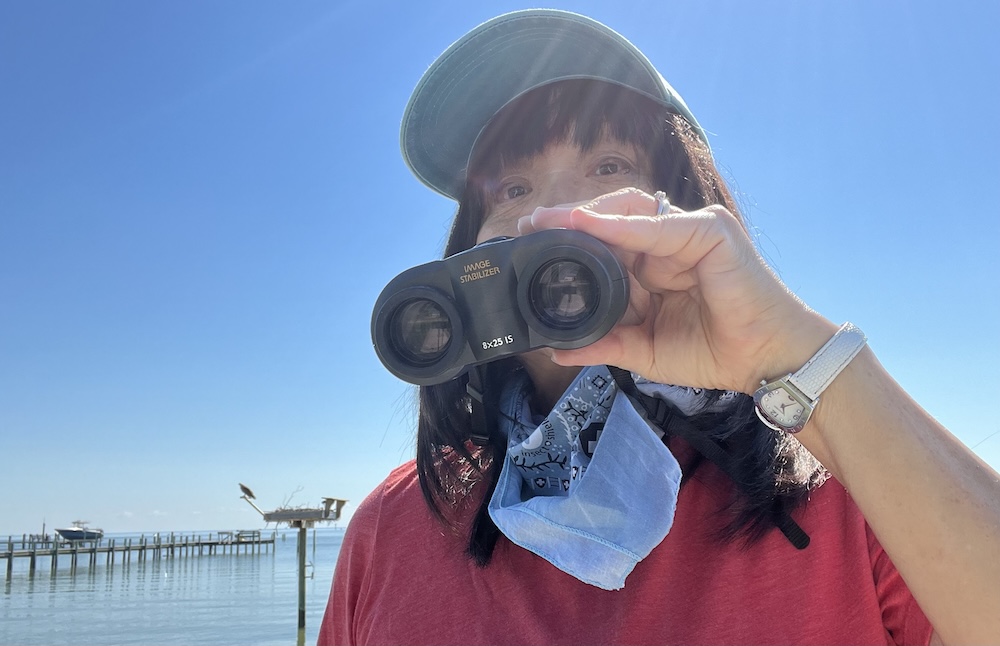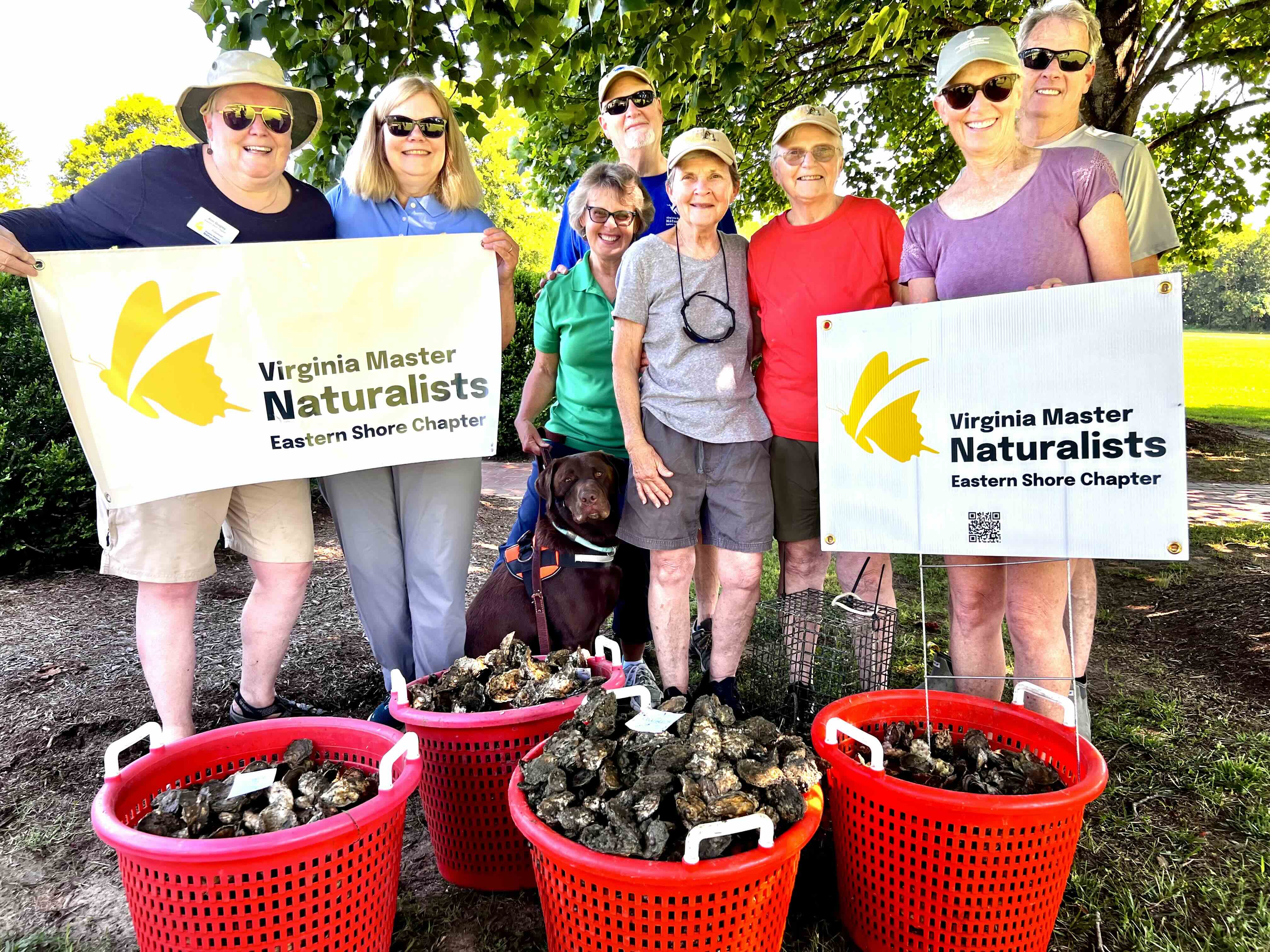
Being a VMN Volunteer
Being a Virginia Master Naturalist Volunteer
This page contains numerous curriculum resources that may be used flexibly by Virginia Master Naturalist chapters and trainees to meet their learning needs. These resources also are available to other volunteer programs and the public for their use, but please note that watching or reading these materials cannot substitute for enrolling in and completing a basic training course with a VMN chapter in order to become a Virginia Master Naturalist volunteer.

Learning Objectives
Upon completion of the Virginia Master Naturalist basic training course, participants will understand and/or be able to:
Introductory Information
- What is a VMN volunteer
- The mission and focus of the program
- The chapter-based, state-sponsored structure of the VMN program
- The roles of each of the VMN sponsoring agencies with regard to natural resource management and education
- The pathway for becoming and remaining a Certified Virginia Master Naturalist volunteer
- The types of activities VMN volunteers may do for their service, with local examples of education and outreach, citizen science, stewardship, and chapter administration
- The requirements and responsibilities of VMN volunteers, including expected standards of conduct and other guidelines as presented in the Volunteer Policy Handbook.
Record Keeping Responsibilities
- How to log on to and use the Volunteer Management System, Better Impact, for learning about and signing up for approved activities, entering continuing education and service records, updating the volunteer profile, accessing documents, completing e-learning modules, and completing annual re-enrollment
- The importance, value, and required nature of timely documenting and reporting of activities done while serving in any VMN capacity
- Who to contact for help with the Volunteer Management System, for help finding activities to fit their skills and interests, or for help with other aspects of their volunteer role.
Risk Management Responsibilities
- What risk management is and how it applies to VMN volunteers
- Typical and possible risks associated with VMN volunteer activities
- Factors to consider when planning and preparing for any VMN activity to ensure that it is safe
- What Virginia Cooperative Extension’s liability insurance is and the requirements for coverage
- Importance of documenting activities you do as a VMN volunteer in the Volunteer Management System
- What it means to have duty of care in the context of VMN volunteering
- What to do in the event of an accident or incident
- Special considerations for working with youth, including the “above suspicion” policy, 4-H requirements, and mandatory reporting of suspected abuse
- How to deal with contracts that need to be signed and requests for Certificates of Insurance
- Wildlife laws and permits that may pertain to VMN volunteer activities
- The need to obtain and document landowner/land manager permission before conducting volunteer activities
Civil Rights Responsibilities
- The civil rights responsibilities of all VMN volunteers, and the legal basis for those responsibilities
- Key civil rights terms and concepts that apply to VMN volunteers
- When and how to use the required ADA and non-discrimination statements.
- How to collect and report educational contacts data
- Where to find additional resources related to volunteers’ civil rights responsibilities
Other Information and Skills
- Communicate the mission and goals of the Virginia Master Naturalist program to a person who is not familiar with the program
- Identify the local chapter leaders and know who to contact for questions and other needs.
- Demonstrate ability to log on to the Volunteer Management System and correctly enter volunteer hours.
- Demonstrate ability to identify potential risks of a volunteer activity and take appropriate precautions.
Introductory Videos
What: Short videos to introduce volunteers to the topic of Being a Virginia Master Naturalist volunteer.
Possible uses:
- Have trainees watch before class as preparation
- Watch as part of class
- Have trainees watch after class as review or supplementary material
Virginia Master Naturalist Transformations
Promotional video describing the Virginia Master Naturalist program
Watch on WebsiteBackground Readings
Required Readings
Virginia Master Naturalist Volunteer Policy Handbook (updated 2025)
Additional Readings and Info Sheets can be found at Current Volunteers.
Presentation
Being A Virginia Master Naturalist Volunteer: An Introduction : This links to a PowerPoint file that can be edited by the local chapter and used in the training class.
eLearning Modules
There are two online, e-learning modules that must be completed by all Virginia Master Naturalist trainees in order to complete the basic training course. One covers risk management for VMN volunteers and the other explains the civil rights responsibilities of all VCE volunteers, including VMN volunteers. The document below provides step-by-step instructions for accessing the trainings from within Better Impact. Additional resources on risk management and civil rights responsibilities can be found on the VMN website.
Assessment Questions
Written assessment question ideas:
- A member of the public sees you, wearing your VMN nametag, observing birds as part of a citizen science project. She asks you what the Virginia Master Naturalist program is. What do you tell her?
- List at least 3 approved volunteer activities in your chapter that you are interested in participating in.
- Name each of the 7 agencies that sponsor the VMN program. Pick one of those agencies and describe its role in managing and/or educating people about Virginia’s natural resources.
- List at least three pieces of information VMNs should record when documenting their volunteer service.
- Describe your plan for completing 40 hours of volunteer service and 8 hours of CE within one year.
- Find and list the names and email addresses for your chapter’s advisor, president, training chair, volunteer service/projects chair, membership chair, and lead person for help with the Better Impact system.
Practical assessment activity suggestions
- Complete at least one hour of approved volunteer service and log it correctly in Better Impact.
- Complete the risk management planning worksheet for a volunteer activity that you want to do.